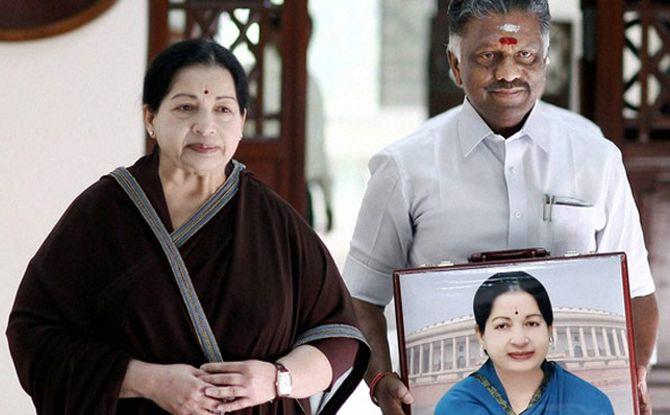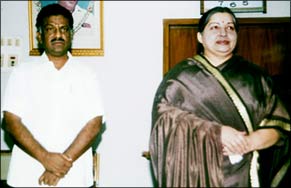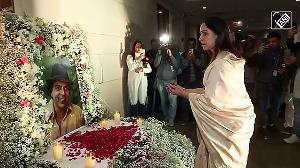It doesn’t matter that the man who has been given charge of Jayalalithaa’s portfolios today started out opposing her, reports Aditi Phadnis.

You could ask why Ottakara Panneerselvam (or OPS as he is known in Tamil Nadu) has been given charge of Jayalalithaa’s portfolios, including the authority to call cabinet meetings while she is in hospital. One reason could be his apparent lack of ambition and readiness to give up the chief ministership when asked. He’s done so not once but twice, the last time around, in 2014. In 2001, he was made the chief minister of the state when Jayalalithaa was jailed. He refused to sit in the chief minister’s chair, preferring instead to occupy the seat next to it.
When Jayalalithaa was convicted in an income tax case and sent to jail in 2014, OPS was selected by her as the man who would rule as Bharata did when Ram was sent on vanvas: the parable that is being related with such relish by workers of the All India Anna Dravida Munnetra Kazhagam. OPS cried a great deal but consented to take charge. But the real control was in the hands of his officials.
As chief minister, it was he who pointed out in February 2015, when the 2015-16 Union Budget was tabled, that rather than create a new income slab to tax the super rich, the government had imposed a surcharge -- just so it would not have to share the proceeds with the state governments.
After Jayalalithaa was released on bail but OPS was still the chief minister, Tamil Nadu complained bitterly about the 14th Finance Commission award and the way it had short-changed the state specifically in the state’s share in the divisible pool of taxes: from 4.96 per cent, the share came down to 4.4 per cent.
The chief minister griped that other similarly placed states with higher-than-average per capita gross state domestic product had gained from the increase in the weight to the area criterion, the introduction of the demographic change and forest area criterion; while poorer states had gained from the income distance criterion.
But despite being the only state in India where forest cover had actually increased (around 20 per cent now), Tamil Nadu had lost on all counts. On top of this, because it had no deficit, it had not received the revenue deficit grants.
It was during OPS’s tenure that Tamil Nadu did some hard bargaining with the Union ministry of railways, which is proposing special purpose vehicles with the state governments to finance railways projects with the Centre paying 50 per cent of the cost and the state pitching in with free land.
OPS pointed out that the land might be free but it had to be monetised in terms of equity shares for the state government at market value so that money could be raised from banks or from the market. And, he said, the Centre should keep to the time-table so that the state government did not suffer on account of the Centre’s laziness.
For Jayalalithaa, watching all of this from afar, it was clear that OPS was a dutiful second-in-command, content to stay in the combined shadow of officials and the chief minister. It didn’t matter that he was a Thevar from south Tamil Nadu. It didn’t matter that he had started out opposing her and had actually backed Vennira Adai Nirmala, who contested against her in 1989. What mattered was that while OPS could be considered a caste force, he was realistic enough to work for Jayalalithaa instead of trying to overreach himself and become a threat to her.
According to analysts, the relationship between Jayalalithaa and OPS is symbiotic. The Thevars are an extremely important caste force in this region; but without Jayalalithaa, OPS, despite being from a family that is respected, would be nothing. For the moment, circumstances have imposed a succession plan in the AIADMK. Whether this will endure, only time will tell.











